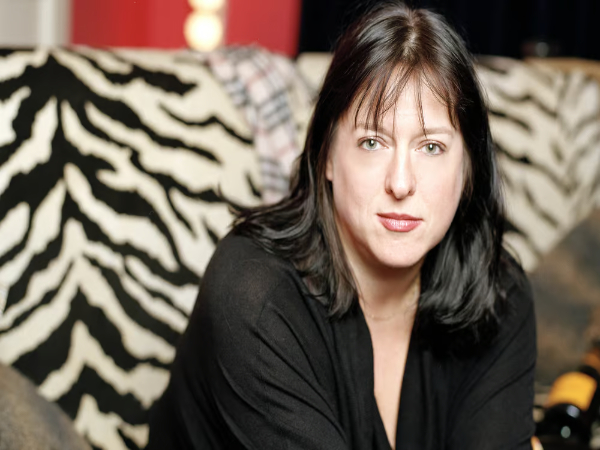Julie Burchill: The Outspoken Voice of British Journalism
Unapologetic, fearless, and fiercely intelligent—Julie Burchill remains one of the most controversial figures in modern British media.

Julie Burchill is a British journalist, novelist, and cultural commentator best known for her fearless, opinionated, and often divisive commentary. She first rose to prominence as a staff writer at the New Musical Express (NME) at the tender age of 17 and has since left an indelible mark on British journalism. Her work spans several decades and includes contributions to major newspapers such as The Guardian, The Daily Telegraph, and The Sunday Times. With a career defined by sharp wit and fearless critique, Burchill is a singular voice in British media.
Early Life and Background
Born on July 3, 1959, in Bristol, England, Julie Burchill grew up in a working-class family. Her father was a Communist factory worker, and her mother worked as a dinner lady. Her upbringing shaped much of her worldview, grounding her in strong opinions about class, gender, and societal norms. She attended Brislington Comprehensive School but left formal education early, opting instead for a career in writing—a path she pursued with remarkable success.
Julie Burchill Age and Milestones
As of 2025, Julie Burchill is 65 years old. Over the span of nearly five decades, she has continually reinvented herself while maintaining a clear, unapologetic voice. From the punk scene of the late ’70s to her current role as a cultural critic, Burchill’s age only underscores her staying power and relevance in the ever-changing media landscape.
Julie Burchill’s Breakthrough at NME
Julie’s big break came when she joined the NME in the late 1970s. Her fresh, aggressive writing style was a perfect match for the emerging punk scene. Alongside Tony Parsons, she became one of the youngest and most talked-about music journalists of the time. Her work at NME not only put her on the map but also set the tone for a career defined by disruption and fearless commentary.
Career Highlights and Controversies
Over the years, Burchill has written for nearly every major British newspaper, including The Guardian, where she penned provocative columns in the ’90s. She later moved on to The Sunday Times and The Daily Mail, never shying away from controversy. Topics like feminism, class struggle, religion, and politics were frequent subjects of her work, often inciting strong reactions.
Her unapologetically direct tone has sparked numerous public debates, and she has both gained admirers and drawn ire in equal measure. Whether writing about gender politics or the state of modern Britain, Burchill has always remained steadfast in her views.
Julie Burchill Family Life
Julie Burchill has been married multiple times and has one son, Jack, from her first marriage to writer Tony Parsons. Her family life has also been the subject of media interest, with her personal and professional lives often overlapping. Despite some turbulent periods, she has always maintained a strong, independent persona.
Julie Burchill Wiki and Online Presence
A search for “Julie Burchill wiki” or “Julie Burchill Wikipedia” yields extensive entries detailing her long and colorful career. These pages serve as comprehensive overviews of her professional journey, listing her published books, key articles, and major controversies. While informative, they often lack the nuance of her actual writing, which is best appreciated through direct reading of her work.
Author and Novelist
In addition to her journalism, Julie Burchill has penned several novels and autobiographical works. Her debut novel, “Ambition,” published in 1989, was a bestseller. She followed it with titles such as “Sugar Rush,” which was later adapted into a successful TV series. Her autobiography, “I Knew I Was Right,” provides an unfiltered look into her life, showcasing her characteristic wit and candor.
Cultural Impact and Legacy
Julie Burchill’s influence on British media cannot be overstated. She paved the way for a new generation of female journalists who saw in her a model of bold, fearless commentary. Her career also raises questions about the responsibilities of public intellectuals and the boundaries of free speech.
She has been praised for breaking taboos and challenging societal norms, but also criticized for perceived insensitivity and provocation. Either way, she remains a central figure in discussions around media ethics and cultural commentary.
Current Endeavors and Perspectives
Though no longer at the center of mainstream journalism, Burchill continues to write, now more often in independent outlets and on social media. She maintains a loyal following who appreciate her take-no-prisoners style and intellectual rigor. She has also explored playwriting and continues to be involved in literary circles.
Conclusion
Julie Burchill stands as a unique figure in the landscape of British journalism. Her contributions span multiple decades, numerous publications, and various forms of media. Whether you admire her candor or take issue with her provocations, there’s no denying her influence and lasting legacy. As a journalist, novelist, and cultural critic, Burchill exemplifies what it means to write without fear—a quality that keeps her relevant well into her 60s.
In a world where opinions are often softened for mass appeal, Julie Burchill reminds us of the power of unfiltered truth. She has shaped not just articles and columns, but entire conversations around politics, gender, and society. Love her or loathe her, Julie Burchill is a voice that demands to be heard.



